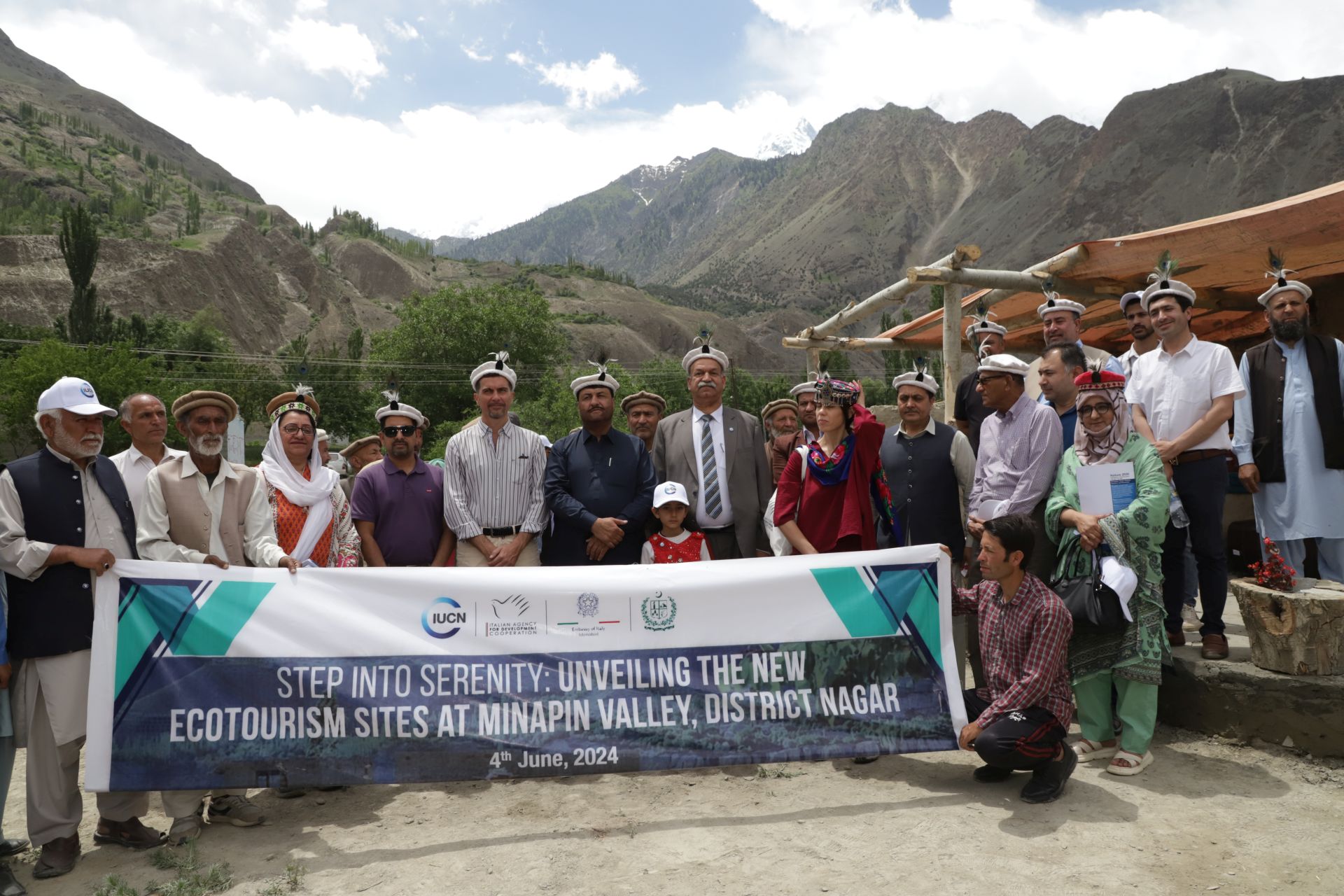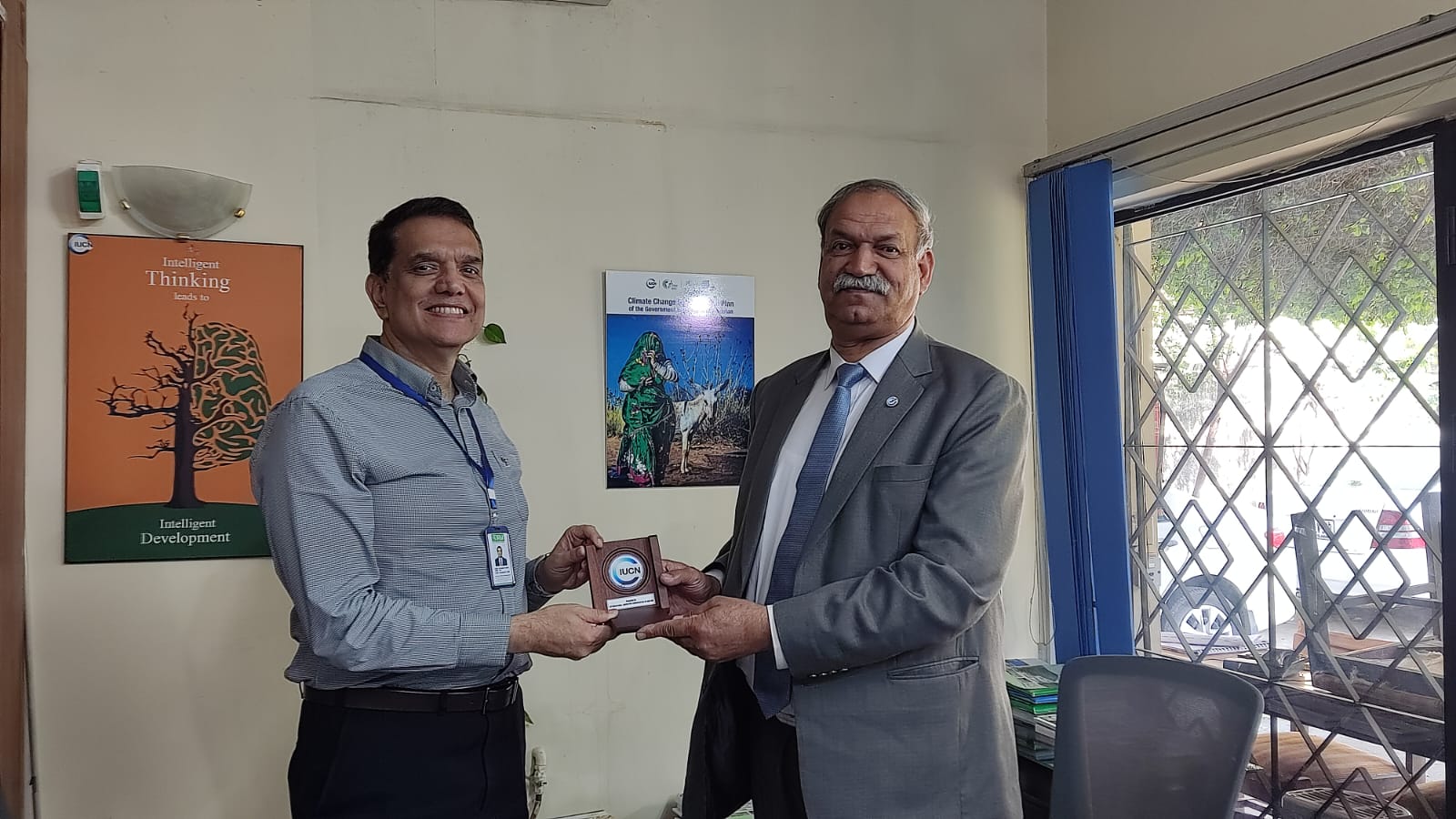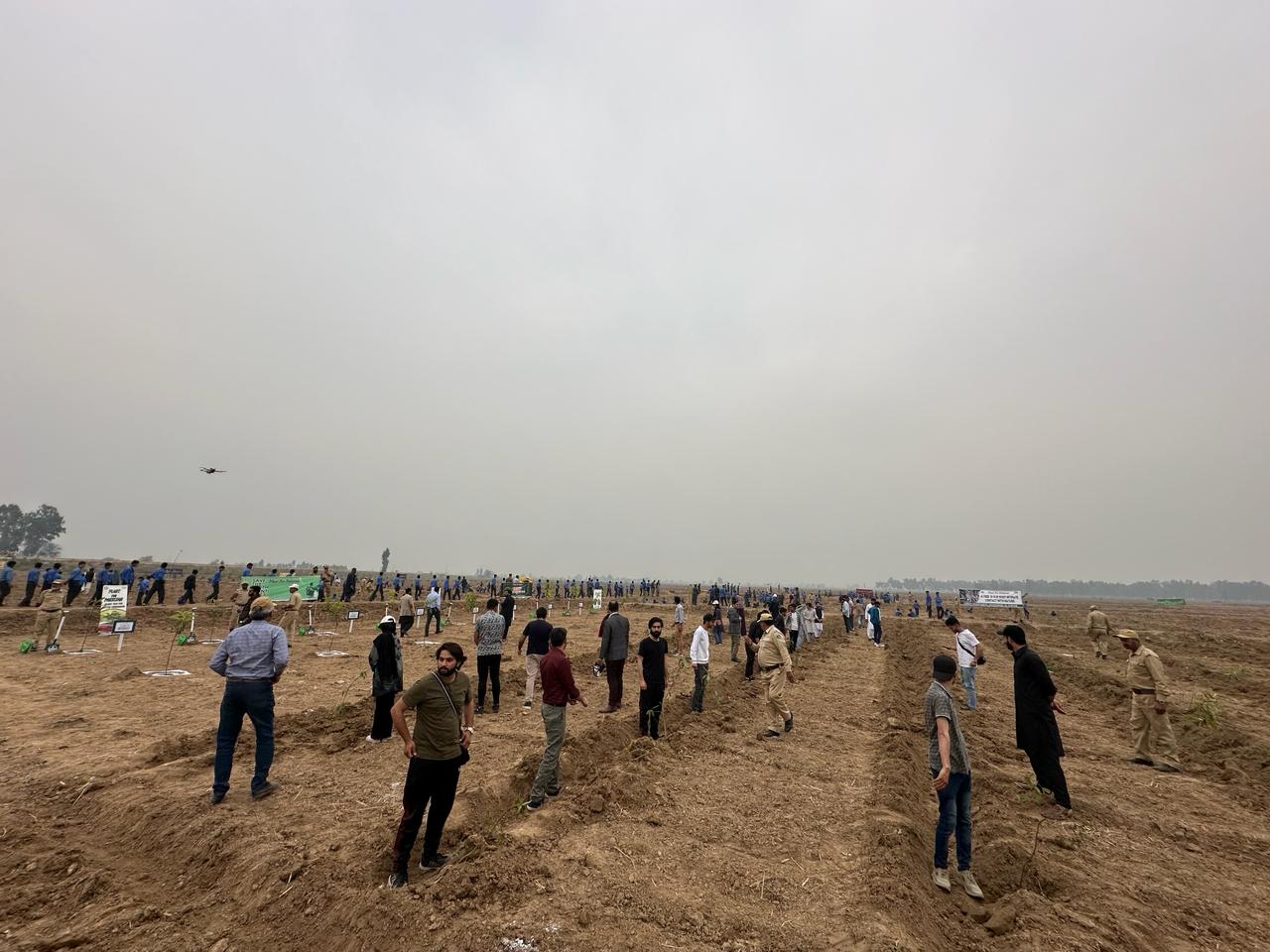International Biodiversity Day 2023, A Message by Mahmood Akhtar Cheema, Country Representative IUCN Pakistan
On behalf of the International Union for Conservation of Nature (IUCN), it is my great pleasure to extend my warmest greetings to all of you on this auspicious occasion of International Biodiversity Day 2023. As we come together to celebrate the remarkable diversity of life on our planet, it is crucial that we reflect upon the pressing challenges that confront us and renew our commitment to conserving and protecting our precious natural heritage.
Biodiversity, the incredible tapestry of life that encompasses all species of plants, animals, and microorganisms, plays a fundamental role in sustaining our ecosystems and ensuring the well-being of present and future generations. It is our shared responsibility to preserve this rich web of life, for it forms the foundation upon which our societies and economies thrive.
Today, as we mark International Biodiversity Day, we are reminded of the urgent need to address the unprecedented loss of biodiversity that our planet is facing. The recent assessments and reports from the Intergovernmental Science-Policy Platform on Biodiversity and Ecosystem Services (IPBES) have sounded alarm bells, underscoring the magnitude of the challenge before us. The destruction of habitats, climate change, pollution, unsustainable land use, and overexploitation of resources are just some of the factors driving biodiversity decline.
As the IUCN Country Representative, I find it heartening to see the collective efforts undertaken by our government, civil society organizations, local communities, and other stakeholders in advancing the cause of biodiversity conservation. Through collaborative partnerships and innovative initiatives, we have made significant strides in protecting our natural ecosystems, conserving endangered species, and promoting sustainable livelihoods that are harmonious with nature. IUCN Pakistan is undertaking a project Biodiversity Safeguarding in Northern Pakistan focused on Biodiversity conservation in the Gilgit Baltistan region, where the key stakeholders including government agencies, academia, media and local communities have been involved in its effective implementation. The Italian Agency for Development Cooperation (AICS) is the donor for this initiative. IUCN Pakistan has also partnered with Karot Power Company Limited (KPCL) for implementation of Biodiversity Management Plan of the Karot Hydropower project. Under this initiative, the local governments of Punjab and Azad Jammu Kashmir are playing a key role with the formation of Biodiversity Management Committees. The local stakeholders including academia, media and community based civil society organizations are also playing a major role in biodiversity and environmental conservation in this area. Under the independent monitoring of Ten Billion Tree Afforestation Programme, IUCN Pakistan with its consortium partners FAO and WWF Pakistan is striving to ensure and align project interventions with biodiversity conservation efforts by promoting native flora and fauna throughout the country. On the southern side, IUCN is partnering with the government of Balochistan on mangroves restoration, rangeland management and community awareness on water issues in Balochistan. In Sindh, we are in partnership with the private sector to work with communities towards building their resilience to climate change through saline agriculture and saline aquaculture in Thar. The project also involves communities in the protection of breading nests of critically endangered Vulture species in the Desert and Karoonjhar mountains of Tharparkar district. Another engagement with the ACIAR and a consortium of organizations and Universities from Australia, Dubai and Pakistan focusing community adaptation to salinity in southern Indus Basin, the project involves co-inquiry and co-research approach to explore sustainable salinity adaptation options for farming communities. A comprehensive ecological (fauna and flora) baseline of Thar desert has been also established with the objective to develop a sustainable action plan for the revival the local fauna and flora for ensuring enhanced biodiversity, as an outcome.
Despite the above, the scale of the challenge requires us to redouble our efforts and accelerate the implementation of conservation measures. This calls for enhanced collaboration, knowledge sharing, and the adoption of science-based approaches to inform policy decisions. It is imperative that we integrate biodiversity considerations into all sectors of society, from agriculture and forestry to urban planning and energy production. IUCN Pakistan has helped the Ministry of Climate Change, Government of Pakistan for the development of the National Biodiversity Strategy and Action Plan (NBSAP) but now after the establishment of the Kunming-Montreal Global Biodiversity Framework Fund by the Global Environment Facility, this would require further updates.
Moreover, we must also address the social and economic dimensions of biodiversity conservation, recognizing the intrinsic link between human well-being and healthy ecosystems. By fostering equitable and inclusive approaches, we can ensure that biodiversity conservation benefits are shared by all, particularly the most vulnerable communities who rely directly on natural resources for their livelihoods.
International Biodiversity Day serves as a reminder that each one of us has a role to play in safeguarding biodiversity. As individuals, we can make conscious choices in our daily lives that reduce our ecological footprint and promote sustainable consumption. As professionals, we can advocate for policies that prioritize biodiversity conservation and sustainable development. As institutions, we can invest in research, capacity building, and the establishment of protected areas to conserve critical habitats.
In conclusion, let us seize this opportunity to rededicate ourselves to the cause of biodiversity conservation. By working together, we can create a future where nature thrives, where ecosystems are resilient, and where humanity lives in harmony with the diversity of life on Earth. On this International Biodiversity Day, let us reaffirm our commitment to protect and restore our planet's natural heritage for generations to come.
Thank you,
Mahmood Akhtar Cheema
Country Representative
IUCN Pakistan
Disclaimer
Opinions expressed in posts featured on any Crossroads or other blogs and in related comments are those of the authors and do not necessarily reflect the opinions of IUCN or a consensus of its Member organisations.
IUCN moderates comments and reserves the right to remove posts that are deemed inappropriate, commercial in nature or unrelated to blog posts.



